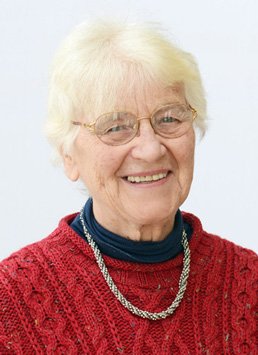Society for the Study of Women Philosophers, Inc.
a non-profit, tax-exempt educational charity 501(c)3 Internal Revenue Code
Macrina the Younger
(Makrina of NeoCaesaria)
d. 379
Philosophy of Religion, Feminist Theology
|
Kate Lindemann's Women Philosophers pages |
 |
Remember!! Your purchase of books by clicking on Abe Books or Amazon links through this site earns us a small commission that is used to provide travel scholarships. |
Macrina the Younger was the grandchild of Macrina the Elder. Both these women were important philosophers in the early Christian Church.
"The premise that women are men's spiritual equals is accepted and endorsed in all early Christian sources without exception" [Source:Ranft, Patricia. A Woman's Way p.26. Thus is it not surprising to find women in early Christianity who hold positions of authority and who are teachers and directors of men as well as women.
The two Macrinas are prime examples of this leadership and scholarship. Imagine living in a family with six saints and four major scholars. it must have been interesting - especially since Macrina the Younger lived through persecutions and she both counsled her brothers, Gregory and Basil and tried to live a simple life rather than the ostentatious one that family fortunes might have dictated.
Life and works of Macrina the Younger
Macrina, the Younger was the grandchild of Macrina the Elder. She the first born child of Basilius and Emmelia. In Gregory's Life of Macrina he says that his mother, Emmelia took much care in the education of her children, especially her first born, Macrina the Younger.
As with most Christians, the scriptures formed a major part of Macrina the Younger's upbringing but Gregory notes that she was attracted to parts of the scriptures that are not normally the study of children. She showed preference for the books of the Wisdom of Solomon, especially the parts that treat ethics. In addition the Psalter was her constant companion. [Source: Gregory's Life of Macrina].
During the persecutions of Galerius and Diocletian, the entire family left their estates and survived by by hiding in the wilderness with other members of their household. The rise of Constantine as emperor saw the return of family estates but Macrina the Younger never assumed sumptuous living.
Like many 'lovers of wisdom', she chose simplicity of life did what she could to eliminate social distinctions and stratification. She chose to live simply and encouraged her mother to do so also. The economic distinctions between them and their servants were deliberately blurred.
When Macrina the Younger was about 12 years old, her father had arranged a marriage but soon after the arrangement was made, the potential groom died. The young seeker of wisdom decided to remain single, to devote her life to Christian perfection.
Macrina the Younger became a leader in the family after the death of her mother, Emmelia. As her brothers moved into adulthood, she provided direction and counsel.
Gregory in his biography of his sister tells us that when Basil returned home after his studies he was "puffed up" with his new knowledge of rhetoric and looked down on the locals. It was not long before his sister drew him to the study of philosophy and Basil changed his ways.
If you want to read Gregory's biography, it is available on-line at Life of Marcrina the Younger
As far as this thinker's philosophical discourse is concerned we are fortunate that Gregory also recorded a discussion he had with his sister about the nature of the soul. The full text, On the Soul and Resurrection, is available on-line at: Macrina the Younger - On the Soul and Resurrection NOTE: You need to scroll down the page. You will see a link to the title about 2/3 of the way down on the page.
Macrina the Younger died around 379 CE. The Christian Church celebrates her feast day on July 19.
Makrina the Younger is one of more than 100 women featured in A Pictorial History of Women Philosophers photo album, and in Busted!! A Pictorial History of Women Philosophers, Vol. 1.
This page was last updated 12/13/14.
Society for the Study of Women Philosophers